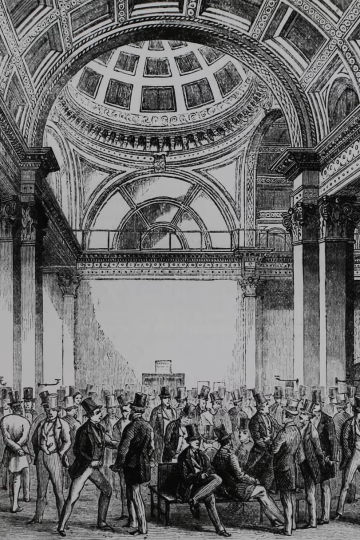Victorian Bournemouth (259) traces how the greenfield Bourne Valley became a County Borough within sixty years. Local leaders and groups guided the community through various challenges, promoting unity beyond religion, politics, and puritanism. The example of the Chrysanthemum Society demonstrated cooperation between classes to create successful events, such as flower shows. Ultimately, the “Fountain” vision prevailed over the “Stream,” although the stream continues through the valley.
Tag: success
Victorian Bournemouth (257): Hankinson’s res gestae
Victorian Bournemouth (257) analyses Thomas Hankinson’s res gestae speech, delivered at the conclusion of his mayoral tenure. The address summarised the year’s accomplishments with professionalism and clarity. Hankinson emphasised the commercial and social factors underpinning Bournemouth’s growth. As an influential figure in the town’s development, his actions and remarks presented a distinct alternative to prevailing models of privilege and paternalism. Hankinson advocated modernisation, ongoing improvement, and the increasing importance of civic governance.
Victorian Bournemouth (256): fin de siecle
Victorian Bournemouth (256) describes how the resort went through significant social changes after the mid-1800s. The old Arcadian world—where the gentry received automatic respect from those of lower status—disappeared. Instead, a merit-based town emerged, where successful individuals saw respectability as just as valuable as gentility. Reverend Pretyman’s awkward efforts at social engineering only highlighted the transformations taking place in Bournemouth.
Victorian Bournemouth (249): British Indians (5)
Victorian Bournemouth (249) reports on a notable concentration of Anglo-Indian individuals listed by the 1901 census for Boscombe, Bournemouth. These individuals, most native to the Madras and Bombay Presidencies, shared common social characteristics: involvement in colonial administration or commerce, and a transient lifestyle within the British Empire. While some family connections have emerged, more may have existed. After 1901, some continued their travels while others settled in Bournemouth, drawn perhaps by its idealised English atmosphere, a reflection of their own complex cultural identities.
Victorian Bournemouth (247): Q3 summary
Victorian Bournemouth (247) has discussed the main subjects covered by the last quarter’s articles. They dealt with the overall subject of commercial life. It provided examples of success and failure among local companies. It highlighted changes within the scale of enterprise, much of it now conducted by companies operating on a national scale. Changes also occurred because of technological improvements. This created challenges, which Bournemouth companies did not always overcome. Changes in commerce also created opportunities for individuals to advance. Some proved successful (shop girls), others less so (carpenters’ strike).
Victorian Bournemouth (246): banks of banks
Victorian Bournemouth (246) has speculated that, during the 1890s, the community position attainable by bank managers changed. Hitherto, perhaps seen as akin almost to the gentry, managers had enjoyed a special place within their communities. The increased and systematic development within banking, however, may have made it harder for managers to attain such a position. At Bournemouth, however, during the 1890s, the population of bank managers appears to have included managers of both types.
Victorian Bournemouth (245): community men
Victorian Bournemouth (245) has analysed the social and career profiles of bank managers who had retired to the resort by 1901. They emerge as social stalwarts. The study also reveals how, during this period, banks and staff hid their marketing activities within a cloak of social respectability. This apparent generosity seems in sharp contrast with the advertised pursuit of Mammon practised today.
Victorian Bournemouth (242): bus battles
Victorian Bournemouth (242) has followed the fortunes of the two main local omnibus companies operating during the 1890s. Beneficial to their directors and shareholders for a while, a comfortable cartel between them, neither could withstand the commercial threat posed by motor traffic and the tramlines.
Victorian Bournemouth (239): shopgirls
Victorian Bournemouth (239) has surveyed the category and social profiles found for female drapery assistants working at Plummer, Roddis, and Tyrell during the 1890s. In most cases, the girls came from respectable backgrounds, yet proved willing to work for a living. Their social profile suited them well to assist well-heeled customers drawn by the new super-stores.
Victorian Bournemouth (235): commercial terrain (1890s)
Victorian Bournemouth (235) surveyed the commercial terrain evident during the 1890s. It finds that enterprises perhaps adhered to the changing commercial norms wrought by the country’s governments. Nevertheless, Bournemouth’s early success, resulting in part from a strong, closed network comprised of a few people, perhaps experienced difficulties as time passed. By then, the scale of activity required a more open system, welcoming new ideas and qualified people.









